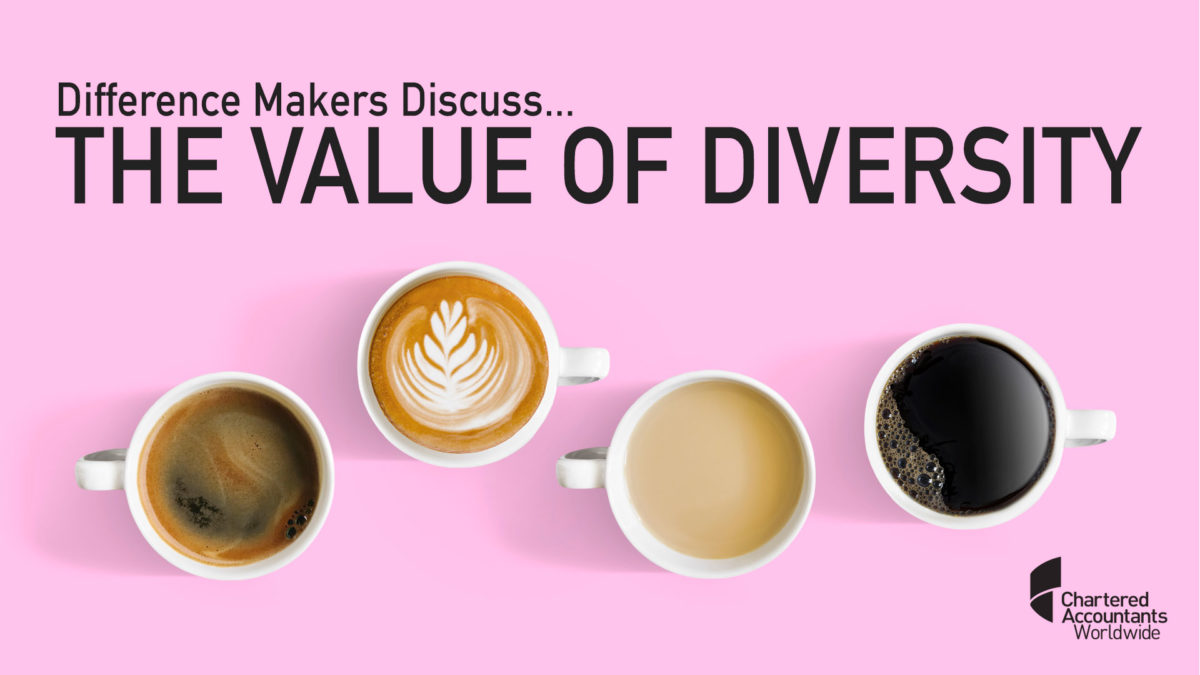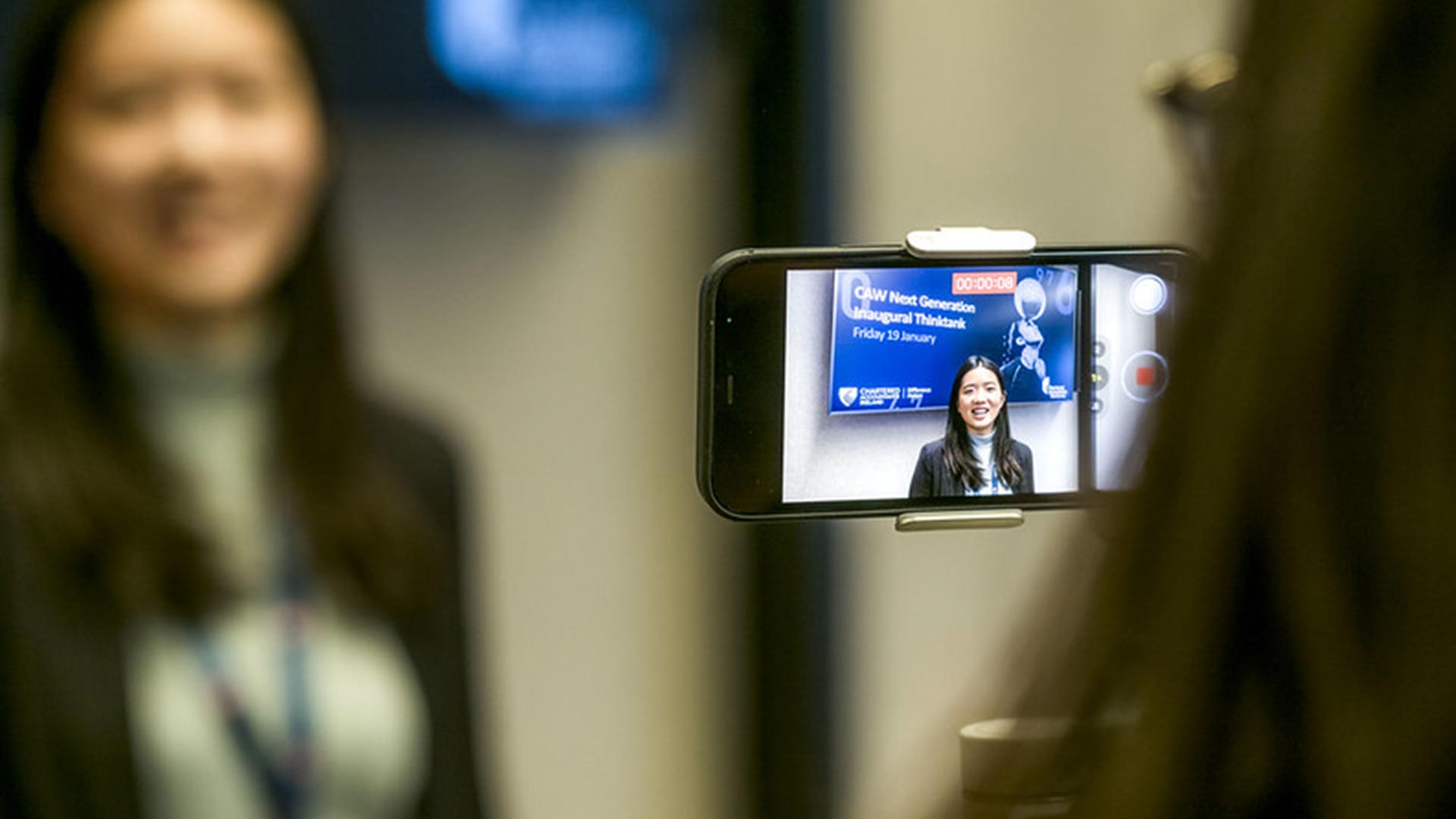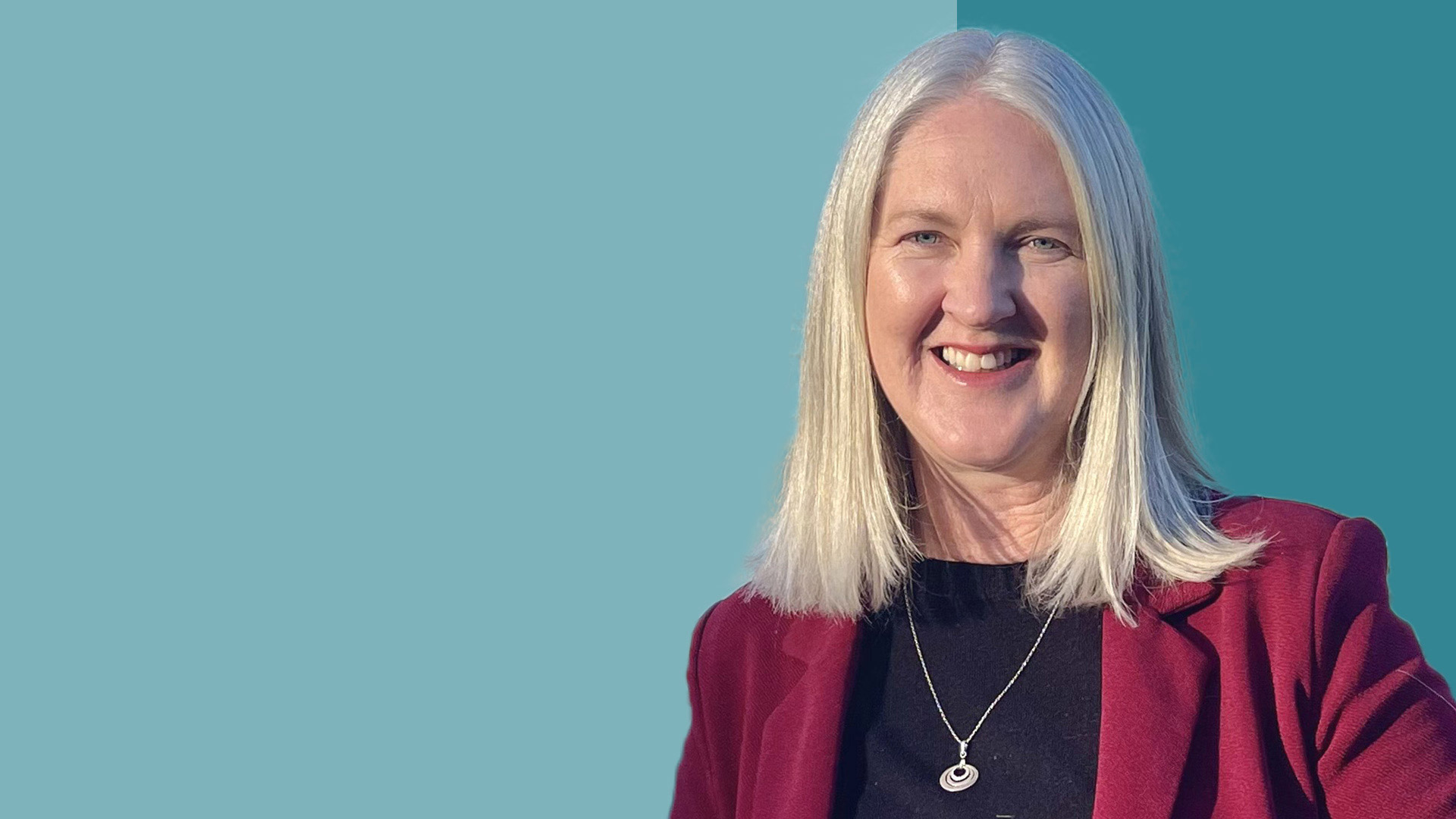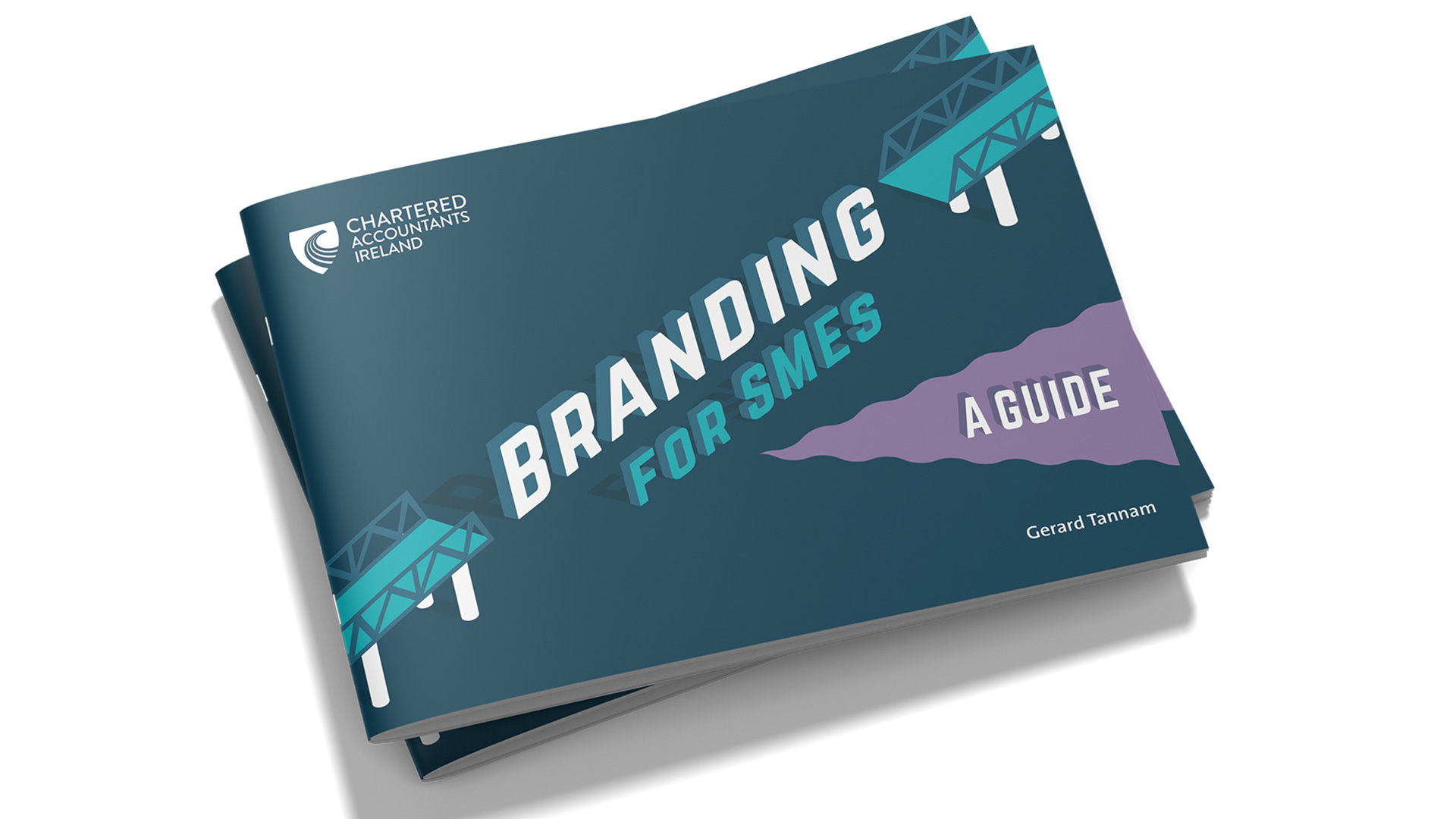More than 1,700 people from over 60 countries registered to attend the first episode of a new series from Chartered Accountants Worldwide, ‘Difference Makers Discuss…’
This first episode ‘Difference Makers Discuss… The Value of Diversity’ included a dynamic group of speakers with expertise in chartered accountancy, strategic leadership, entrepreneurship, and academic research.
Mandy Muchnick, CA(SA), Chair One Young World Africa, Panda, Founder Imagine.Nation, hosted the event which included three guests with fascinating experience and insights:
- Vincent Egunlae, Chartered Accountant, Strategic Leadership Team, Grant Thornton UK, founder Open Private School.
- Dr Caroline McGroary, Chartered Accountant, Assistant Professor of Accounting at Dublin City University Business School.
- Mufseen Miah, Chartered Accountant, Financial Planning Manager Little Dot Media.
The event was rounded off with a lively Q&A session with attendees’ questions from around the world.
Mandy welcomed guests and attendees for what promised to be an insightful event: “We’ll be speaking to both those types of leaders who have fought discrimination and stood up for inclusion; they’ll be sharing some of their personal and professional experiences. And hopefully you will walk away with a few practical tips today on how you can start making a difference.”













